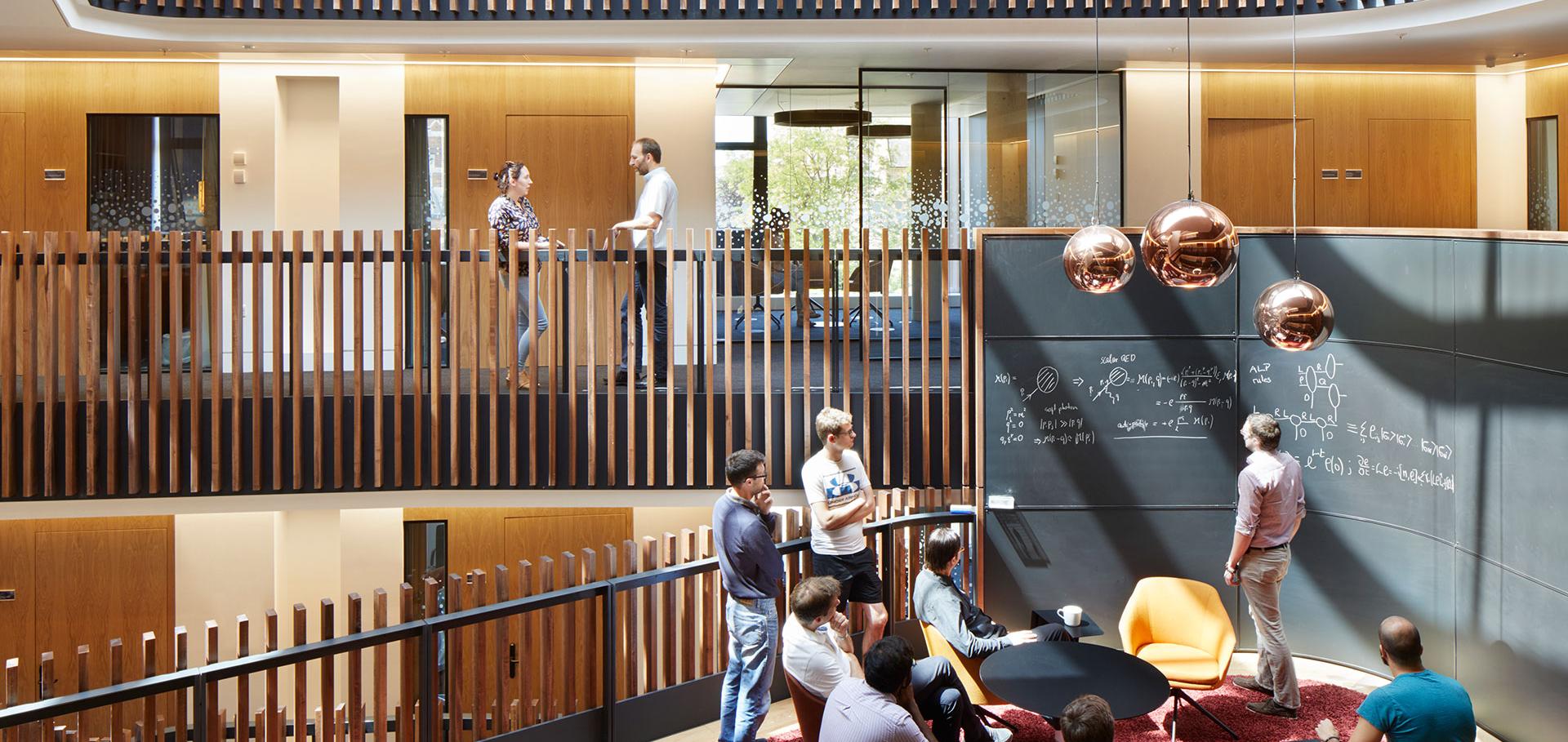Research themes and projects
My research spans theoretical, phenomenological, and methodological aspects of Cosmology, and often involves insights from other fields of research within Physics, or even Mathematics and Computer Science. I have a strong background in statistical analyses and therewith aim to seamlessly connect theory with observation, while also focusing on the experimental details. I particularly find research questions intriguing that demand multi-disciplinary approaches. The following sections give a brief overview of the topics I'm occupied with.
Physics of the Cosmic Microwave Background (CMB)
Keywords: Galactic Foregrounds, Cosmological parameter inference, non-Gaussian statistics, CMB anomalies, ...
Millimetre- and microwave emission from our Galaxy dominates over the signal of the CMB in large parts of the sky and across large parts of the spectrum. I therefore aim to develop ways to model this Galactic 'foreground' radiation, either physically or statistically, to ultimately create a cleaner CMB signal. This involves studying measurements by various experiments in both intensity and polarisation. In addition I develop mathematical tools and corresponding codes to deal with observational effects such as E-to-B leakage in polarisation analyses. Ultimately, the goal is to draw model parameters from the observations which requires, i.a., fitting CMB power spectra under consideration of all previous issues, but also cross-experimental approaches such as those combining CMB lensing and observations of the large-scale density field occupy my research interests.
Gravitational dynamics and Large Scale Structure (LSS)
Keywords: Cosmological Reconstruction, Power spectrum / Correlation function analyses (1D, 2D, 3D), Baryon Acoustic Oscillations, Cosmological parameter inference, ...
I employ computational and statistical tools to analyse LSS in terms of its clustering properties and its clustering dynamics over cosmic time. In particular I focus on features like Baryon Acoustic Oscilations and measures of homogeneity or isotropy as elaborated on in the following two subsections. Beyond that I am invested in efforts to combine CMB and LSS data to constrain our cosmology across all redshifts.
Probing the Foundations of Cosmology with data
Keywords: Testing the Cosmological Principle, Copernican Principle, Anisotropic Cosmology, "Cosmological Fitting Problem", ...
Both the construction of our current understanding of cosmology and the design of statistical tools relies on fundamental assumptions such as the Cosmological Principle (homogeneity and isotropy of observations on large scales) and the Copernican Principle (our observational point of view is that of an average observer). By probing current and upcoming data of the LSS we can scrutinise these assumptions. I am involved in a number of such projects, some of which have uncovered considerable deviations from these Principles' expectations.
Combining Mathematics and Computer Science for Physics
Keywords: Computational Fluid Mechanics (modeling dark matter clustering), Optimal Transport Theory, Geometry Processing, ...
I am always excited for cross-disciplinary approaches to solving problems. Advances in Computer Science, driven by discoveries in Mathematics, offer much ground for such projects. I am working on establishing useful computational tools in cosmology, that analyse gravitational evolution. In particular, we designed a method that recovers the linear density field from observations of non-linearly clustered matter at low redshifts. This aids high-precision observations of features like primordial non-Gaussianity or Baryon Acoustic Oscillations. This field of research has applications in a wide range of subjects, and in this framework I intend to explore subjects as diverse as Galactic Dynamics, Plasma evolution, and binary black hole mergers.
Collaborations
I am a member of the following collaborations
- SKA / Square Kilometre Array (Associate of the Cosmology Working Group)
- Rubin-LSST / Legacy Survey of Space and Time (LSST:UK Junior Associate)


